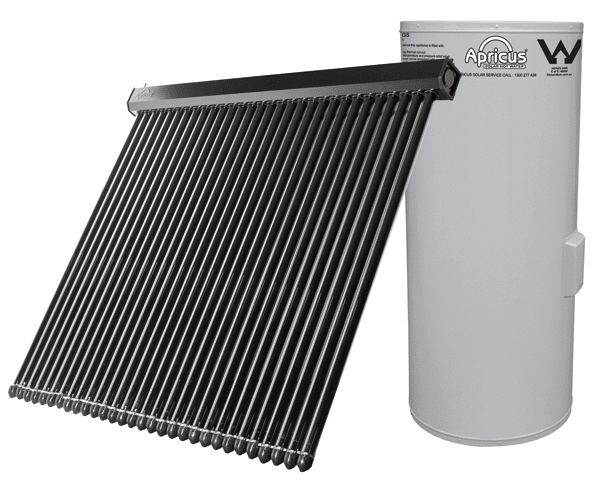
Have you been in a situation where your family needed hot water heater, and had none come out? Water heater failures are more common than we’d like to think. The good news is that with some diligent research and maintenance, you can work out the signs of impending water heater failures in time.
For a start, let’s look into what common problems people have with their water heaters. Once we pinpoint the problems, we can work on finding solutions! Water heaters tend to be one of the most neglected appliances in a home. Water heaters have limited lifespans and can experience several different problems that you should be aware of. Call us today at 1800 633 920 or fill out our form online for more information on how we can help you or your business save time, money and energy.
How long should a water heater last? Though it may seem like your water heater will last forever, many water heaters will need to be replaced within 10 years. If you are experiencing any problems with your water heaters, contact a repair professional as soon as possible at our affordable prices. Understanding imminent threats are the best way to keep safe and feel safe. We have compiled a list of 10 signs your water heater may be failing so you can fix the problem before it happens!
The only way to know if your water heater is approaching failure is by gauging its performance over time. If you’ve been having trouble with your water heater, it may have reached the end of its lifespan. There are some telltale signs your water heater is close to failing, such as:
1. Rust and Corrosion on your Water Heater:
Rusty or corroded areas on the outside of your water heater are a sign that the interior tank walls are also rusting. When this happens, your water heater is slowly falling apart and it can lead to mould growth in your home and a higher risk of exposure to harmful bacteria. Replace it before the tank fails.
2. Low Water Pressure:
If you notice low water pressure in your house, there could be a clog or a restriction in the pipes further down the line. Low water pressure can be caused by sediment buildup in your water heater. If you think this may be the case, contact us today so we can take a look and get the issue resolved for you before it gets worse.
3. Hot Water Isn’t Hot Anymore:
You might notice your hot water temperature has lowered because corrosion has affected the heating element or burners in your tank. You may also notice rotten-egg smells coming from your hot water if there’s sulphur in your water supply. This is a sure sign that it’s time for an upgrade!
4. Problems with the pilot light:
If the pilot light goes out while you are at home or while you are sleeping, this is an indication that there is a major problem with your gas line, and you should contact our professional team immediately. This could also mean that your tank has lost pressure because of sediment buildup or from a faulty thermocouple and should be serviced.
5. Excess nois from the water heater:
Excess noise coming from the water heater can result from sediment buildup, which depends on how hard your water is. If you use softened water or regularly flush your system, you won’t have this problem. When sediment builds up in the bottom of the tank, it can obstruct the heat transfer and cause overheating.
As the metal expands, it can rub against other parts in the tank and make various noises. It is normal for water heaters to make some noise as they age (usually a popping sound), but if you notice this you should contact us as soon as possible so we can check your need for upgrades or repairs.
6. Cracked or missing anode rod:
The anode rod is a sacrificial rod that protects the rest of the tank from corrosion by drawing corrosive agents away from the steel tank. These rods need to be replaced every few years (depending on your water quality). If yours is corroded and cracked, it can cause significant damage to the interior of your tank. This will result in rust and sediment buildup inside your water heater, permanently damaging it.
7. Excessive sediment buildup:
Sediment comes from minerals in the water supply and collects on the bottom of the tank over time due to evaporation and heat exposure. As sediment accumulates in your hot water tank, it becomes more difficult to heat up properly. Eventually, it will cause your tank to rust out from within.
8. Water leaks from the heating tank:
If there are puddles around the base of your water heater, that’s a bad sign. A leak could mean that the tank is corroded through. If so, you’ll need to replace it immediately to prevent flooding and damage in your home!
9. Hot water smells like sulphur:
If you notice that your hot water smells like rotten eggs or sulphur, it could be due to a buildup of sulphur bacteria in the tank. If this is the case, flushing the tank can fix the problem quickly. Still, you’ll need to get they systeme checked by the professionals to ensure the problem is fixed.
10. The water heater is more than 10 years old:
When a water heater begins to fail, it is most commonly simply because it has reached the end of its lifespan. Ten years is the average life expectancy of a water heater, so if your unit is older than that, you should start shopping for a replacement and looking at getting it inspected by professionals.
Water heaters are built to last, but eventually, they break down. Some signs show up long before the actual failure. The sooner you notice these signs and take action, the less damage done to your home, water heater, and wallet. Anytime Hot Water offers 24/7 water heater repairs from experienced and reliable professionals.

